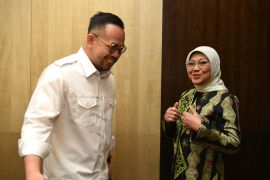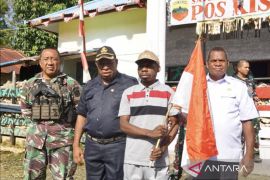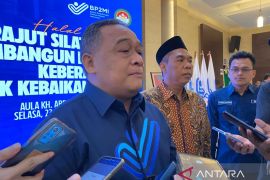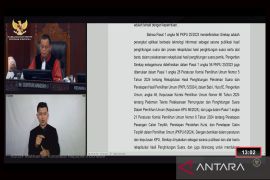Those attending the meeting were representatives of Nahdlatul Ulama (NU), Muhammadiyah, Indonesian Council of Ulemas (MUI) and the Ministry for Religious Affairs.
Agung Laksono said the Tuesday meeting was the first round of talks in which he wanted to listen to the participating leaders` inputs regarding harmonious life of followers of different faiths.
The meeting was aimed at seeking for the best option for avoiding repeated incidents of sectarian violence as recently happened in Cikeusik (Banten province) and Temanggung (Central Java), he said.
The outcomes of Tuesday`s meeting would be reported to President Susilo Bambang Yudhoyono, he said.
Growing religious intolerance and acts of violence have become serious problems for Indonesia.
The Cikeusik incident that happened on February 6, 2011 was an attack on Ahmadiyah followers while the Temanggung incident occurred on February 8, 2011.
The Temanggung incident itself was believed by the Central Java provincial police to have been provoked by misleading information disseminated to the public through short text messages saying that Antonius Richmond Bawengan would get a light sentence from the Tamanggung district court.
Two churches, a Catholic school complex as well as a number of vehicles had become the target of mob violence following a clash during the court session on the religious blasphemy case.
The Cikeusik incident was just part of a series of attacks on Ahmadiyah religious sect followers and their properties that had frequently happened over the past two years.
It was the latest incident that happened in Umbulan village Cikeusik subdistrict, Pandeglang district, Banten province, in which three people were killed.
In response to that incident, Former Vice President Jusuf Kalla said recently that the cases of sectarian violence could be handled if firm law enforcement was implemented to the perpetrators.
"Don`t let them to remain untouched by the law. If it is so, there will be a feeling that if we kill or destroy properties in a mass, we think that the law cannot touch," he said.(*)
(R013/HAJM/M019)
Editor: Ruslan Burhani
Copyright © ANTARA 2011











